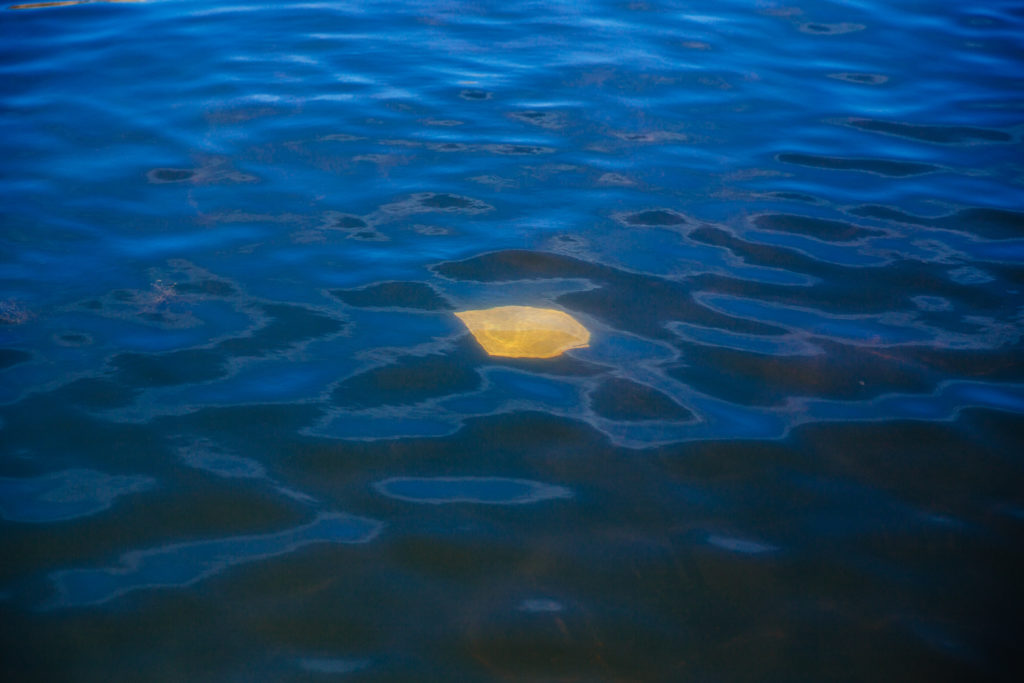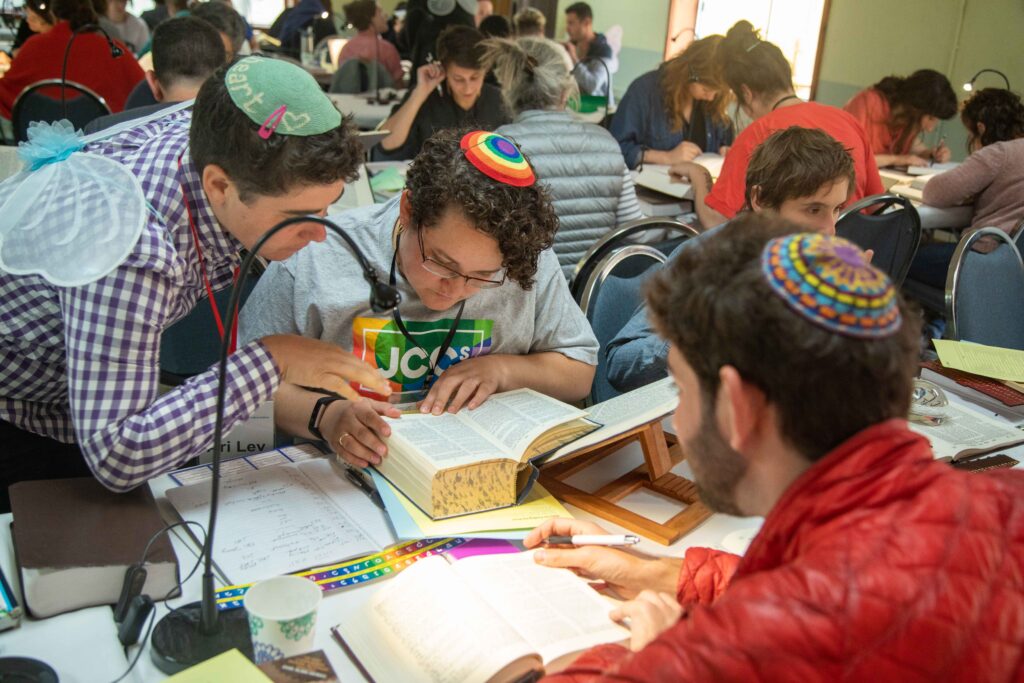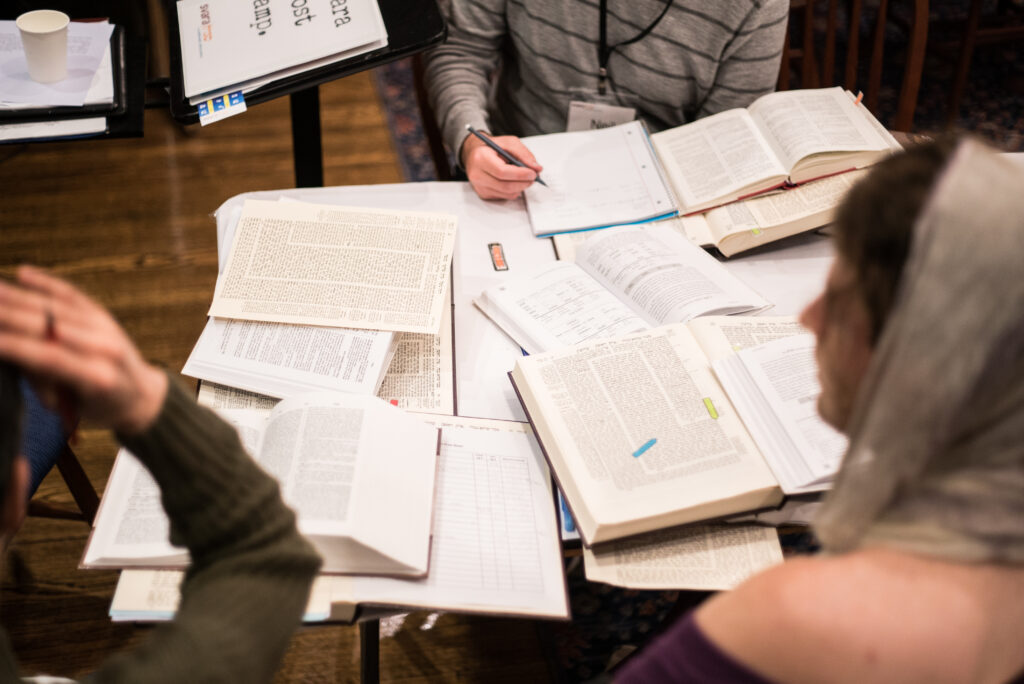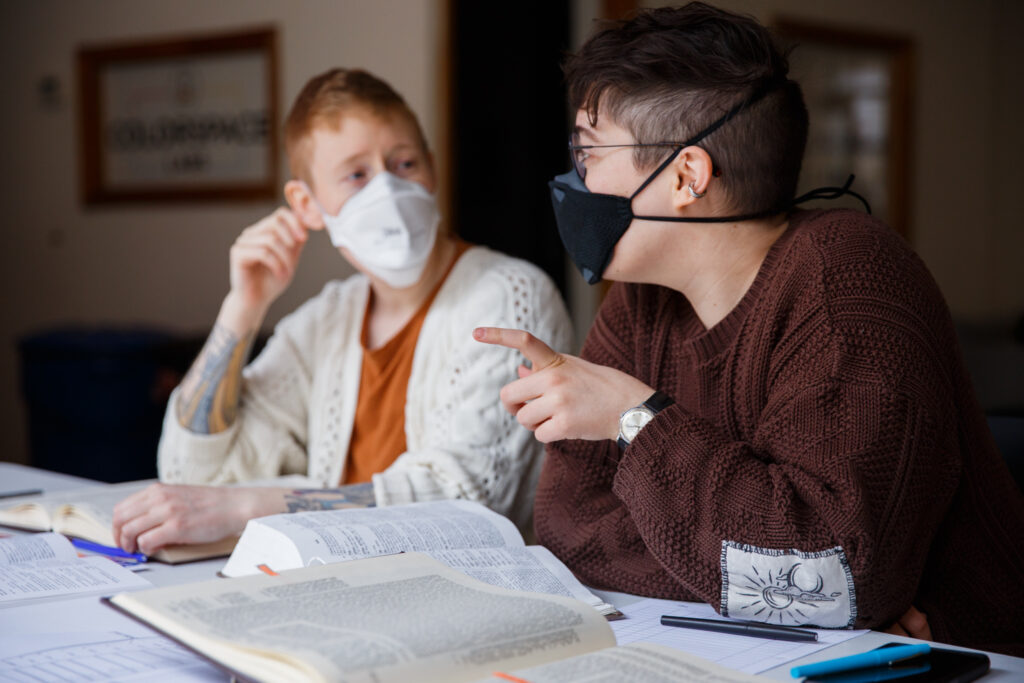One of the great gifts of facilitating the Disability Justice Torah Circle (DJTC) over the past ten months has been getting to take all the alienating questions and moments from my entire adult life of Jewish engagement and turn them into connective and generative community learning and conversation. There are many of those (get excited for future HOTS!), but the one I want to focus on today is the one that formed the basis of the DJTC Meditative Tashlich that I facilitated last week. (“Tashlich” is the yearly symbolic casting-off of sins that can be performed anytime between Rosh Hashanah and Sukkot, traditionally at a body of water.)
That question is: How can we do healthy, effective teshuva as marginalized people?
To expand on the conundrum: I’m sure it’s not surprising to many of you that, as a marginalized person, I have long found the Yom Kippur liturgy to be just as damaging as it is powerful. The consistent, traumatic message that I receive from the world nearly every day is: “You are wrong, and everything is your fault; treating you like a real person is too much effort, and you don’t deserve to take up space.” I’m sure that I’m not the only marginalized person for whom this is true, and it’s a message only magnified for disabled and high-risk people during Covid times. A liturgy that focuses on themes of human insignificance and self-remonstration is both fundamentally re-traumatizing and just plain ineffective for me – and perhaps for you too.
At the same time, I don’t feel satisfied by the response to this problem that I’ve sometimes heard in marginalized circles, which is an invitation for teshuva, or “repentance/return,” to mean, for us, learning to take up more space rather than less. For some of us, some of the time, this is helpful! But I also think that it’s a harmful way of thinking about teshuva if it’s the only way we think about it. Let’s be real – unfortunately, we all know that marginalized people don’t hold any kind of exemption from behaving in damaging ways toward others.
So what’s an alternate model? How might we engage with teshuva in a way that helps us actually grow and do better, rather than just re-traumatizing ourselves?
As I explained in my introduction to DJTC Tashlich, I think that, as unlikely as it may seem at first, there’s some really compelling and relevant wisdom to be found in… (can you guess?!) … the ancient Israelite system of worship. In fact, although this might be an Unpopular Opinion here at SVARA, I’d go so far as to say that the rabbinic narratives of the past two millennia have led us to forget some crucial elements of this earlier, more earth-based wisdom. And so, before I circle back to talking about models of teshuva, I’d like to invite you to lean back and do some imagining.
You’re an ancient Israelite. Like nearly everyone around you, you and your family survive by farming. You have a little surplus crop each year, maybe, and perhaps you even store that surplus in a communal granary to cushion against hard times. But mostly, you live hand-to-mouth. Each year, you know in your bones that in order for you and your community to survive, the crops that you plant each year must take root, grow, and live healthily until harvest time.
Many factors that go into the success of your community’s yearly crops are at least somewhat under human control: things like hard work and the wise application of farming acumen. But there’s one absolutely fundamental thing that’s not under your control – and this, too, you know in your bones.
What is it – this X factor that determines everything?
Can you guess?
It’s the rain – the rain that falls in a regular cycle each year, beginning in the fall, around the festival of Sukkot, and lasting until Pesach, in the spring. During those six months of the year, the land around you turns lush and green, and the stage is set for your yearly crops to succeed. In the summer, between Pesach and Sukkot, no rain falls; each year, the land turns brown, dusty, and dry.
You depend on the rain. But even more than that – the way you depend on the rain is different than the way others nearby do, in the major civilizations that surround you – Egypt and Babylonia. Both Egypt and Babylonia are farming cultures based around major river systems, the Nile and the Euphrates. These river systems irrigate the land around them by flooding every year. Though they entail some of their own precarity, they are also, for the most part, reassuringly regular and abundant resources.
But for you, as an Israelite, it’s different. You don’t have a major river nearby. You depend on the rain, and only the rain. Each fall, you watch the sky with a familiar tension in your stomach. Will the rains arrive? Will they come on time? Will they provide enough for you, and those dear to you, to live?
Since the yearly arrival of the rains is the biggest survival question you face in your life, it becomes the container for your biggest existential questions – and as such, you and your community build your religious and spiritual lives around it. Your single most important yearly festival is Sukkot (or – as you often call it – just ha-chag, “The Festival.”) The Festival arrives just as the land around you is at its most parched, and everyone’s eyes are trained on the sky, watching with a mixture of anxiety and hope for clouds that might portend the lifegiving, lifesaving rains. During the Festival, you and your community praise God for the bounty God has provided you over the past year, and you beseech God to send rain so that you all may live through the next. You do this with a sort of “rain dance,” complete with fertility symbols that sound like the rain when you shake them, and the chanting of esoteric formulas asking God to save you. (Future generations will call these lulav and hoshanot, respectively.)
Given that the Festival – Sukkot – is the most important existential moment of your year – the moment when you lay open your deepest vulnerability and ask God for the essential element of your survival over the coming year – it only makes sense that, before Sukkot, you want to “clean house,” so to speak, when it comes to your relationship with God. So, how do you do that? Well, that’s what brings us to Yom Kippur. (Set aside Rosh Hashanah, by the way – that’s a holiday that won’t be developed for centuries yet.)
Yom Kippur, for you, is different than the way it will be imagined by future generations; it’s not so much a repentance holiday as a cleaning holiday. To explain this, I need to explain a little more about how you (or, really, the priests who run the Temple in Jerusalem, which you may or may not ever get to visit in your lifetime) understand the mechanics of “sin,” “impurity,” and the Temple. In short: The Temple is a special dwelling-place of God’s on earth, but in order for God to be able to keep “living” there, the conditions in the Temple need to be appropriately maintained – almost as if God were an astronaut wearing a space suit. The “substances” that degrade the Temple and threaten God’s presence there are tum’ah (ritual impurity) and avon (“sin” or “guilt”). We could have a much longer conversation about both of these categories, but basically, tum’ah arises from the processes of regular life, like birth, death, and sex, while avon arises from “garden-variety” misdeeds (ie. anything short of murder or idolatry). Tum’ah and avon are “magnetically attracted” from the sites where they arise – across the Land of Israel – to the altar in the Temple, where they accumulate. On Yom Kippur, the rituals performed by the priests act as a “cleaning agent” that scrubs away all the accumulated tum’ah and avon from the previous year, so that the Temple can continue to perform its crucial function of holding space for God’s presence on earth. (As a participant in DJTC Tashlich observed, “It’s like defrosting your freezer!”)
Okay – that was a lot of information! Now let’s draw ourselves back to the present day, and think about how this model of the High Holiday season, where Sukkot is the pinnacle and Yom Kippur is the precursor, could help us imagine alternative models for thinking about teshuva – especially models that might be healthier for marginalized people.
Here’s my proposal, which I offered at DJTC Tashlich last week:
What if, instead of thinking of Yom Kippur as a day when we reflect on how we’ve done “bad things,” we instead envisioned it as a day when we strive to clear away our accumulated internal debris for the sake of nurturing growth, fertility, and possibility – for both ourselves AND our communities? That “debris” could take many forms – it might look like trauma responses, distractions, fears, unexamined motives. It might look like the common human tendency toward egocentrism (which is a natural part of life, just like tum’ah), and it might look like shame. Without this debris – or, let’s be realistic, with less of it – might we find ourselves in a better place to ask for “rain” – that essential, fundamentally uncontrollable element that combines with human effort to enable survival for all on this planet?
I would love to hear your thoughts, spins, musings, and alternate takes on the above.
And, to close for now, I’d like to leave you with the meditation that I offered after this introduction at DJTC Tashlich. Because meditations are powerful tools that can also be triggering for folks in unpredictable ways, this was structured as a “Choose Your Own Adventure” meditation, with the following three optional prompts. I hope that these prompts – or some other reflective journey sparked by the thoughts I’ve shared here – lead you to a greater sense of internal alignment, with fewer blocked places and more effective sharing of your goodness with the world. May we all be blessed this year to give and receive the gift of rain.
Imagine your inner child – the part of you that is scared, small, maybe impulsive, maybe egocentric, probably traumatized. Can some other part of you, in this moment, be a really great parent to that child – starting with immense love and kindness, and moving on to more firm boundaries or guidance, but with no less kindness?
Choose an area where you’ve tried to focus on “self-improvement” or “responsibility” in the past, and failed, and felt shame. Hold that shame close to you as if it’s a small, five-year-old child. Might you feel anything shift? You love this child and want them to do better next time, but they’re just a child. What help can you seek for them? How might you restructure their environment, or the task, to help them succeed?
Imagine yourself in ten years. It’s a long journey, and that future person is far off, and there’s a lot you don’t know about them – but you care for them deeply. What changes can you make now – perhaps just starting very very small, but with clearness of intention – to make life better or more easeful for that future human, you?







